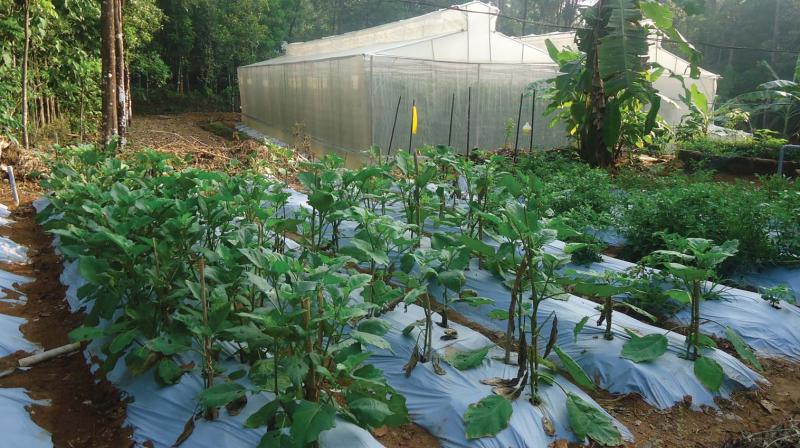The organic dream countcultivation

ALAPPUZHA: It was in 2010 in the wake of the unveiling of a policy organic farming started gaining momentum in the state. The declared goal of the mission: convert the entire agricultural production in the state to organic within 10 years. The fact is there has been no impact on the ground on the mass scale, except in homestead cultivation. Farmers who tried to promote the government’s organic farming policy realise they are fighting a losing battle. Many of them have quit organic farming and rue the suspension of scientific farming. Kuttanad was touted as the laboratory for organic farming when the policy was introduced by the then LDF government. Now the area has become an organic graveyard. Mr Philip Mathew, a farmer in D block, Thekke Araaayiram Padasekhara Samiti, who cultivates on 50 acres, says 99 per cent of farmers practise scientific farming. But it was rather late that he realised he was fighting a losing battle.
“The state Agriculture Department some years ago launched a campaign for organic farming, but it has slowed down in the now. Scientists whenever come across talk to us about organic farming. But nobody wants to practise it now’, he says. The farmers in Kuttanad cultivate paddy under aegis of Padasekhara Samitis, which is collective of 100-200 farmers. They have been enthusiastic about experimenting but shunned resorting to anything that threatened productivity. They shied away from organic farming anticipating low productivity, which would render farming unviable. Mr Mathew admits that they have been using at least 200kg of chemical fertilisers like urea and Factomphos per acre field every 120 days now. It is being applied in three phases (20, 40 and 50 days) for the duration of cultivation. “If you don’t use it, there will be no yield as expected. Nobody wants to take risk,” he said.
He, however, pointed out that some isolated cases of organic farming still survive in the area. Near Mathikayal near Mangalam, he says, a few farmers have been doing organic farming, but the yield, as compared to scientific farming, is low. So they are forced to sell their produce at a premium prices, which the consumer can ill afford”, he noted. The debate over organic farming has come at a time of growing public health concerns, triggered by high morbidity and lifestyle diseases, over contaminated vegetables and grains. People still dread chemical farming, given its side effects. Many from scientific community are still passionate about eco-friendly farming system, reviving traditional farming practices and methods to save the soil.
There are staunch though official votaries for organic farming. “It’s a misconception that organic farming gives lesser yield compared to scientific farming,” says Dr K.G. Padmakumar, director of International Research and Training Centre for Below Sea Level Farming. “We can’t ignore the advantage of organic farming. Many believe that organic farming is a farming method using organic manures, but it’s the process of making land more organic. We need at least 10 million bio-organisms in a single square of land. So it will take time to make the land reach that stage,” he says.
“In my view,” Dr Kumar says, “don’t jump on to organic farming banfwagon overnight. We need to propagate integrated farming methods among farmers in the first stage. The officials have to play the key role in promoting this. No official wants to promote it as it will be an added liability for them,” he points out. He, however, warns against using organic farming as a fetish. The spectrum of organic farming movement in the State has groups and individuals advocating either extreme or moderate versions of organic farming. Dr. S. Leenakumari, registrar, Kerala Agriculture University (KAU), and former head of Rice Research Station, Moncompu here, says it would take time to convert the farmers’ mindset from chemical farming to organic farming.
‘Kuttanad is a highly intense chemical farming spot in the state. It’s also vulnerable to pest attacks. At present, farmers use pesticides to wipe out pests that breed due to the indiscriminate use of chemicals. Apart from this, it’s very difficult to meet the requirement of organic manure in Kuttanad. If cultivation in a farm is to be completely organic, soil has to be conditioned and it requires time,” he said adding that organic farming in the past was successful because farmers in those days had animal components. He even recommends use of safe chemicals if extreme situations warrant it. So farmers naturally depend on hazardous pesticides that offer them better produce, she said.

